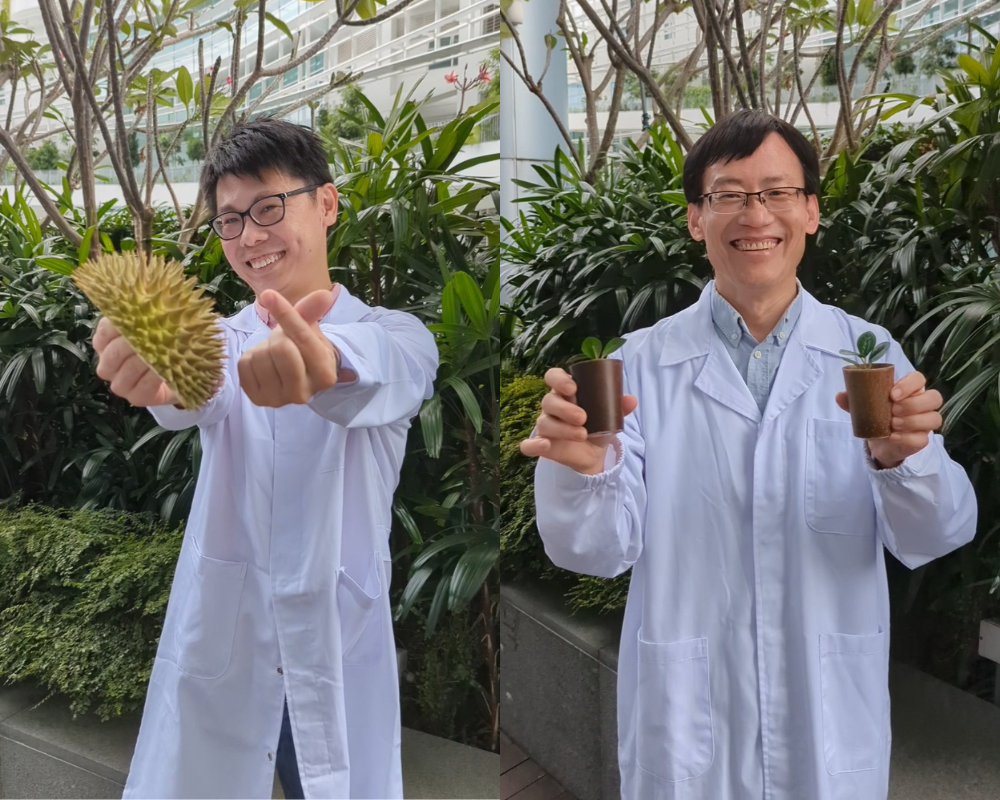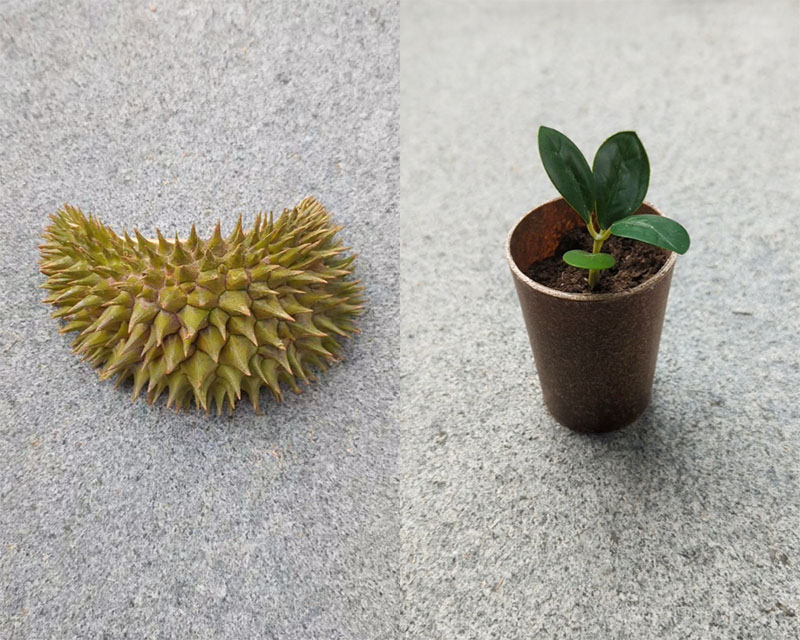IMRE NEWS
Transforming Biomass into a High-Value Agricultural Product
13 Oct 2022

Dr Jayven Yeo (left) and Dr Zhang Xikui (right) from IMRE, A*STAR, holding a pre-processed durian husk and eco-friendly plant pots made from processed durian husks respectively.
To combat climate change by reducing waste generation and carbon footprint, and supporting Singapore’s Green Plan 20301 to reduce 30 per cent of waste sent to the landfill by 2030, there is a pressing need to introduce more sustainable processes to reduce waste generation.
A*STAR’s Institute of Materials Research and Engineering (IMRE) has developed technology to upcycle organic, inedible fruit waste like durian husks into eco-friendly plant pots, turning conventional waste streams into new, sustainable resources.

Waste durian husks (left) processed using IMRE’s technology to form eco-friendly plant pots (right)
The eco-friendly plant pots created from durian husks are fully compostable and degradable in soil, leaving no microplastic trace or toxic residues, offering a green alternative to the non-biodegradable plastic that are created using fossil fuels. Seedlings usually have to be removed from conventional plastic pots to be replanted into the soil, causing waste generation as the plastic pots are usually thrown away thereafter and incurring potential transplant shocks to the plants due to the replanting process. However, there is no need to remove or throw away the eco-friendly plant pots as they can be transferred together with the plants and fully biodegrade in the soil after 3-6 months. This makes agricultural processes less tedious with less waste generation, and also prevents transplant shock in plants by avoiding the need for replanting. Beyond benefiting agricultural businesses, the eco-friendly plant pots can also benefit individuals and communities involved in the urban farming movement, which is growing in popularity in Singapore, for a more food-resilient future.
Did You Know?
Inedible husk makes up the bulk (around 60-70 per cent) of each durian, which are usually disposed of and then incinerated at landfills, contributing to around 11,000 tons of food waste annually2 .
2Source: Businesstoday.com.my - Durian projects now closer to Singapore, worlds third largest durian consumer
A*STAR celebrates International Women's Day

From groundbreaking discoveries to cutting-edge research, our researchers are empowering the next generation of female science, technology, engineering and mathematics (STEM) leaders.
Get inspired by our #WomeninSTEM
.png?sfvrsn=b59474e9_3)